In an increasingly interconnected world, privacy has become a valuable asset. Whether it’s protecting confidential information, securing personal spaces, or maintaining a comfortable environment, privacy plays a vital role. Privacy glass, also known as switchable glass or smart glass, is a cutting-edge solution that allows individuals to control the transparency of glass surfaces with the flick of a switch. By offering privacy on demand, privacy glass ensures that your personal or professional spaces remain secure while maintaining a sense of openness when desired.
What is Privacy Glass?
Privacy glass is a type of glass that can change its visual properties, such as transparency and opacity, based on user preferences. It incorporates advanced technologies like liquid crystals, electrochromism, or suspended particle devices (SPDs) to enable this transformative effect. When privacy mode is activated, the glass instantly transitions from transparent to opaque, effectively blocking the view from outside and safeguarding the contents within.
Benefits of Privacy Glass
Increased Privacy
Privacy is a fundamental human need, and privacy glass offers a practical solution for both residential and commercial settings. Whether it’s for conference rooms, bathrooms, or living spaces, privacy glass ensures that sensitive activities or conversations remain concealed from prying eyes.
Enhanced Security
Privacy glass enhances security by limiting visibility into protected areas. In office buildings, it can be used to shield confidential meetings or secure data centres. In residential applications, privacy glass provides an additional layer of security, preventing potential burglars from seeing valuable assets within the premises.
Glare Reduction
Excessive glare from sunlight can be detrimental to productivity and comfort. Privacy glass helps mitigate this issue by allowing users to control the amount of light entering a room. By reducing glare, privacy glass creates a more conducive environment for work, relaxation, or entertainment.
Energy Efficiency
Privacy glass can contribute to energy efficiency by reducing the reliance on artificial lighting and cooling systems. When the glass is in opaque mode, it blocks sunlight and minimises heat gain, resulting in reduced energy consumption and lower utility bills.
How Does Privacy Glass Work?
Privacy glass operates on the principles of smart glass technology. It incorporates special films or coatings that respond to external stimuli, such as electrical voltage, temperature, or light. By manipulating these factors, the glass changes its molecular structure and alters its optical properties, transitioning between transparent and opaque states.
There are various mechanisms used in privacy glass, including liquid crystal devices (LCDs), electrochromic systems, and suspended particle devices (SPDs). Each mechanism employs a unique approach to achieve the desired transformation, offering flexibility and control to the users.
Applications of Privacy Glass
Privacy glass finds applications in a wide range of industries and sectors. Let’s explore some of the common areas where privacy glass is being utilised:
Residential Buildings
In residential settings, privacy glass can be used in windows, doors, shower enclosures, or even as partition walls. It enables homeowners to create private spaces without sacrificing natural light or the aesthetic appeal of their living spaces.
Commercial Spaces
Privacy glass is extensively used in commercial buildings, such as corporate offices, meeting rooms, and retail stores. It provides an effective way to create private areas for confidential discussions or secure valuable merchandise while maintaining an open and welcoming atmosphere when needed.
Healthcare Facilities
In hospitals, clinics, and other healthcare facilities, privacy is paramount. Privacy glass helps protect patient confidentiality in consultation rooms, operating theatres, and treatment areas. It also allows medical staff to maintain a visual connection with patients while ensuring their privacy.
Educational Institutions
Privacy glass is increasingly being adopted in educational institutions to optimise learning environments. It can be used in classrooms, libraries, or administrative areas to create flexible spaces that accommodate both privacy and collaboration.
Hospitality Industry
Hotels, resorts, and restaurants can benefit from the use of privacy glass in various ways. It enables guests to enjoy privacy in their rooms, offers private meeting spaces, and enhances the ambiance of dining areas by controlling outside views.
Security Features of Privacy Glass
Apart from providing privacy, privacy glass also incorporates several security features that make it a popular choice in security-conscious environments. These features include:
Protection against Forced Entry
Privacy glass can act as a deterrent against forced entry attempts. When in opaque mode, it creates an additional barrier that prevents unauthorised access and increases the security of your premises.
Privacy for Sensitive Areas
Sensitive areas such as executive offices, research laboratories, or VIP lounges require an extra level of privacy. Privacy glass offers an effective solution by instantly transforming the glass into an opaque state, safeguarding confidential activities or valuable assets.
Sound Insulation
Privacy glass also offers sound insulation properties, reducing noise transmission between different areas. This feature is particularly useful in office spaces, where it can create quieter environments for focused work or confidential conversations.
UV Protection
Privacy glass can block a significant amount of harmful ultraviolet (UV) rays from entering a space. This helps protect furniture, artworks, and other valuable items from fading or damage caused by prolonged exposure to sunlight.
Installation and Maintenance of Privacy Glass
The installation of privacy glass involves several steps to ensure its proper functioning. It’s recommended to hire professionals experienced in handling privacy glass installations. Here are some key points to consider:
Installation Process
- Assess the space and determine the appropriate type of privacy glass based on requirements.
- Prepare the glass surface, ensuring it is clean and free from any dirt or debris.
- Install the privacy glass panels, adhering to the manufacturer’s guidelines and utilising the recommended materials.
- Connect the electrical components, if applicable, to enable the control mechanism for switching between transparent and opaque states.
- Test the glass to ensure it operates correctly, adjusting any settings if necessary.
Cleaning and Maintenance Tips
To maintain the optimal performance and longevity of privacy glass, regular cleaning and maintenance are essential. Here are some tips to consider:
- Clean the glass surface with a mild, non-abrasive glass cleaner and a soft cloth or sponge.
- Avoid using harsh chemicals or abrasive materials that may damage the glass or its coatings.
- Check the control mechanisms periodically to ensure they are functioning correctly.
- Address any issues or malfunctions promptly by contacting a professional technician.
Factors to Consider when Choosing Privacy Glass
When selecting privacy glass for your specific needs, it’s crucial to consider several factors. These include:
Privacy Levels
Different privacy glass options offer varying levels of opacity. Consider the desired level of privacy required for your space and select a glass type that aligns with those requirements.
Control Options
Privacy glass can be controlled using various methods, such as switches, remote controls, or even smartphone apps. Determine the most convenient control option for your needs and ensure it aligns with your preferences.
Aesthetic Appeal
Privacy glass comes in different styles and finishes. Consider the overall design and aesthetic of your space and choose a glass type that complements the existing decor.
Cost Considerations
Privacy glass can vary significantly in price, depending on factors such as size, type, and control mechanisms. Set a budget and explore options that fit within your financial constraints while still meeting your privacy and security needs.
Conclusion
Privacy glass has revolutionised the way we approach privacy and security in both residential and commercial settings. With its ability to switch between transparent and opaque states, privacy glass offers enhanced security, increased privacy, glare reduction, and energy efficiency. It finds applications in various industries, ranging from healthcare and education to hospitality and residential buildings. By considering factors such as privacy levels, control options, aesthetics, and cost, individuals and businesses can choose the right privacy glass solution to enhance security and create private spaces when needed.
Who We Are
Tecdur is the leading manufacturer of smart glass for the UK and Ireland. Tecdur Switchable Glass provides the best clarity, lowest power consumption and lowest haze currently available. We can offer a wide range of specifications to meet project requirements with our switchable glass, cost is dependent on specification, application and design. Please get in contact with us to discuss further.
Please visit our portfolio for a look at completed projects. Keep up to date on our LinkedIn Showcase page

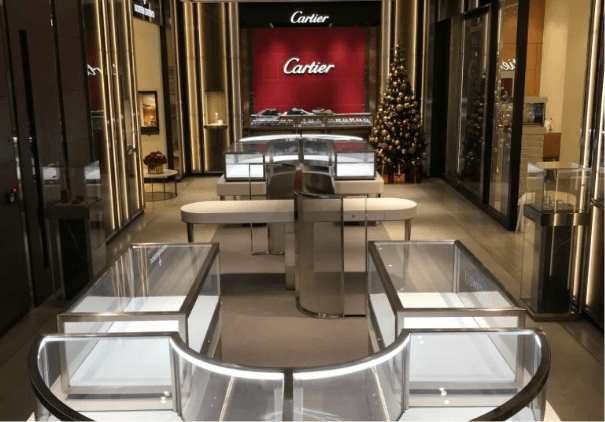
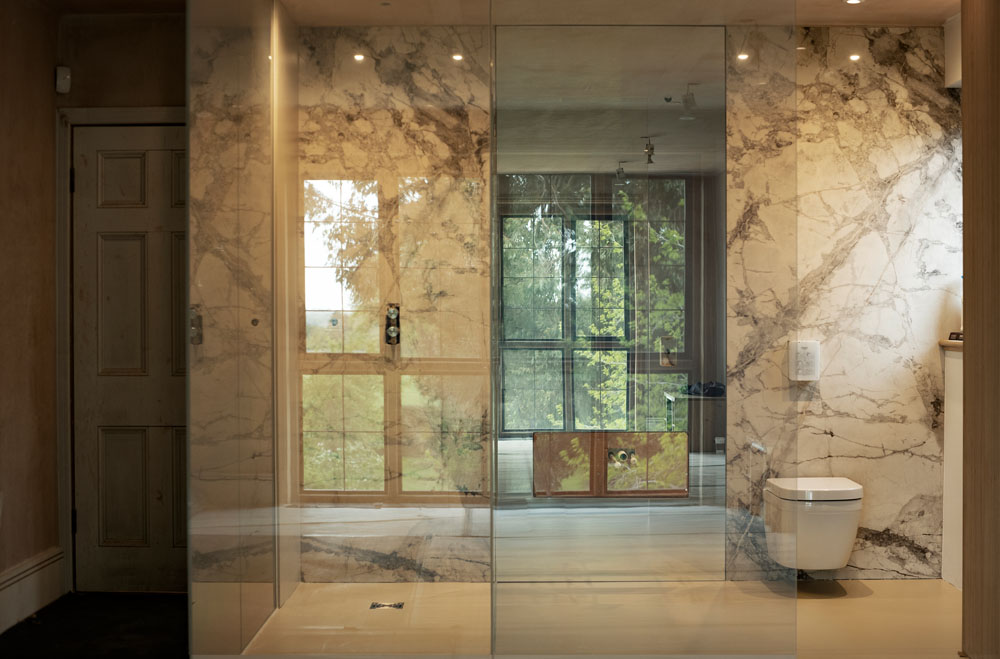
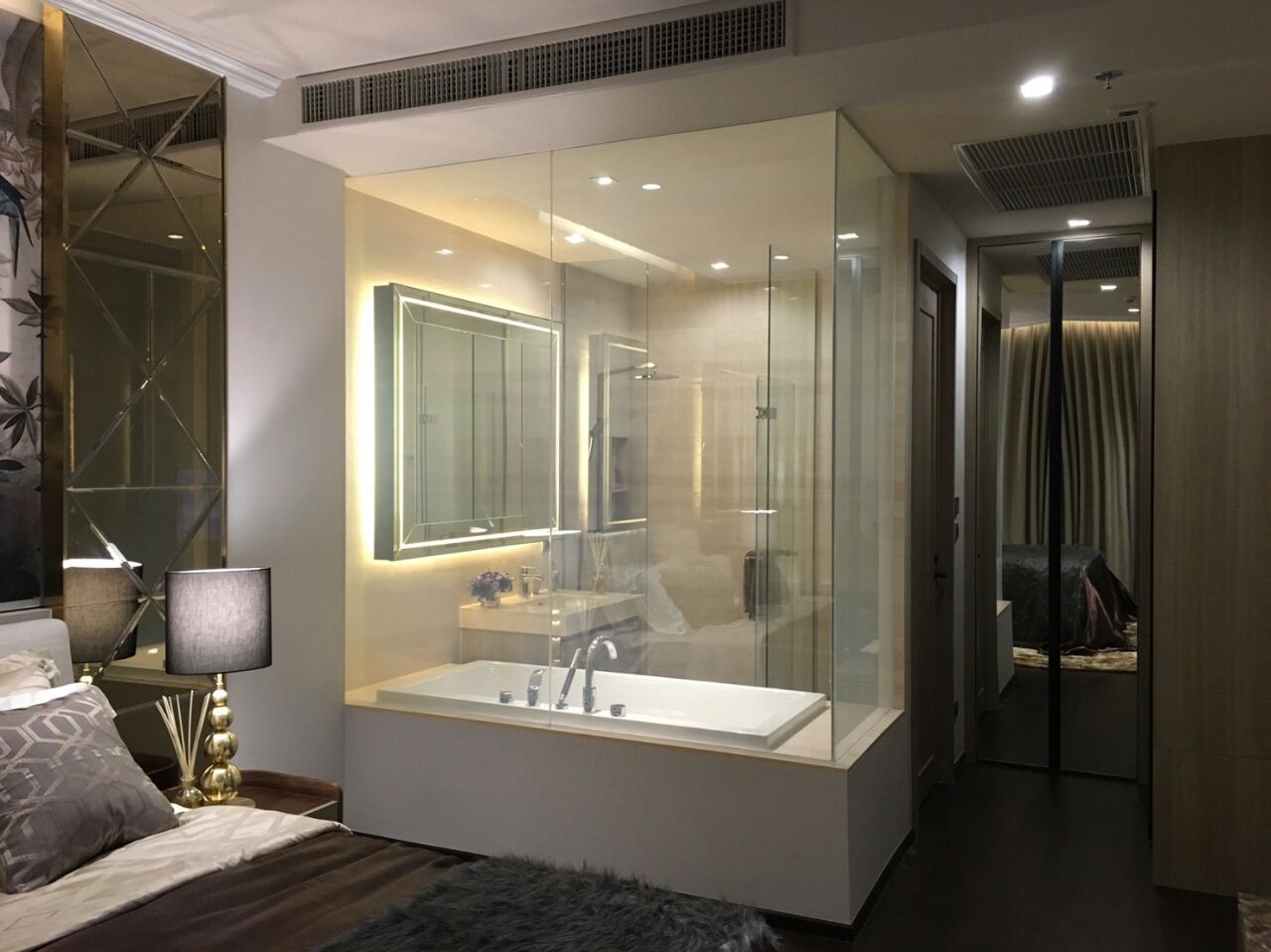
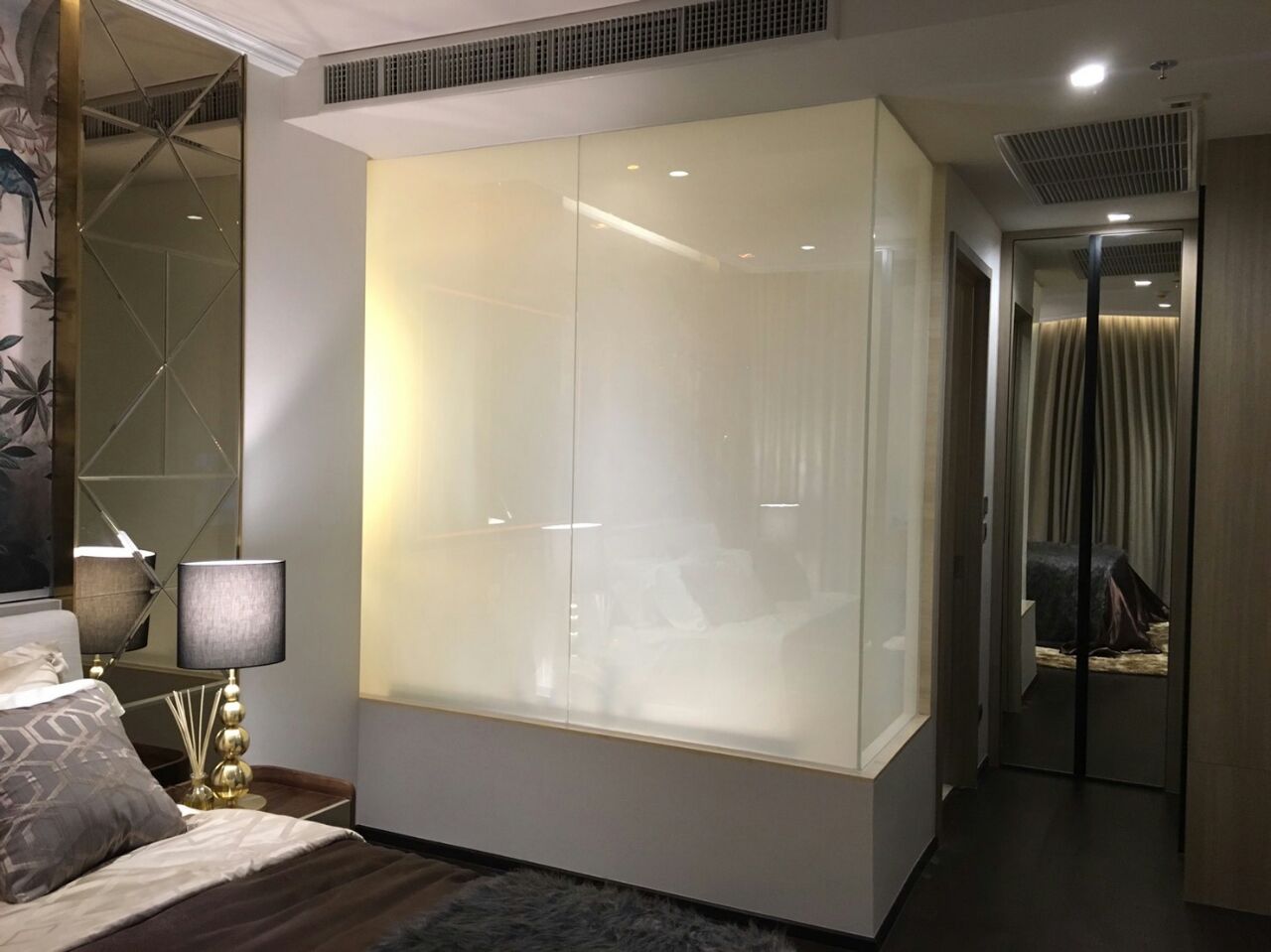
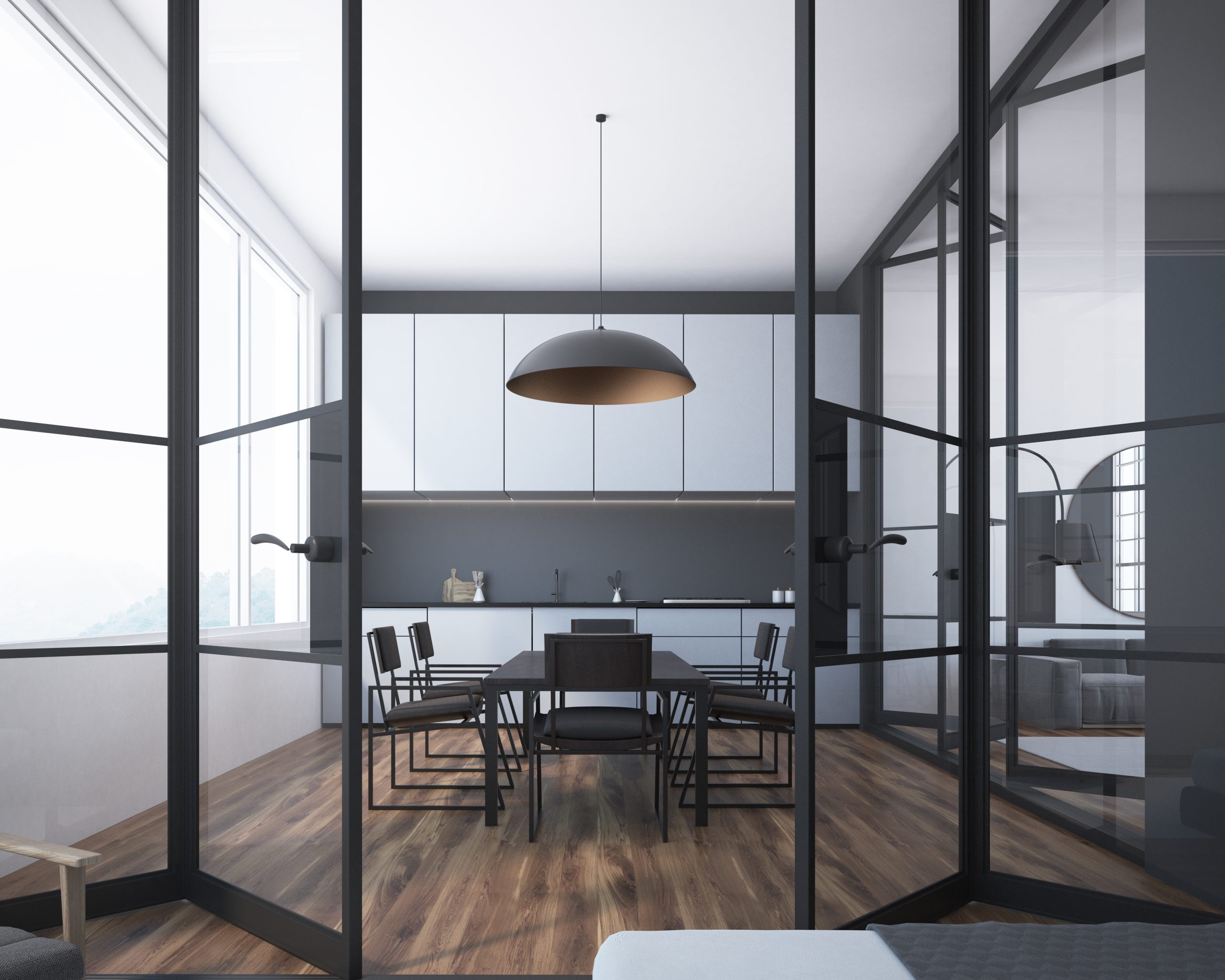
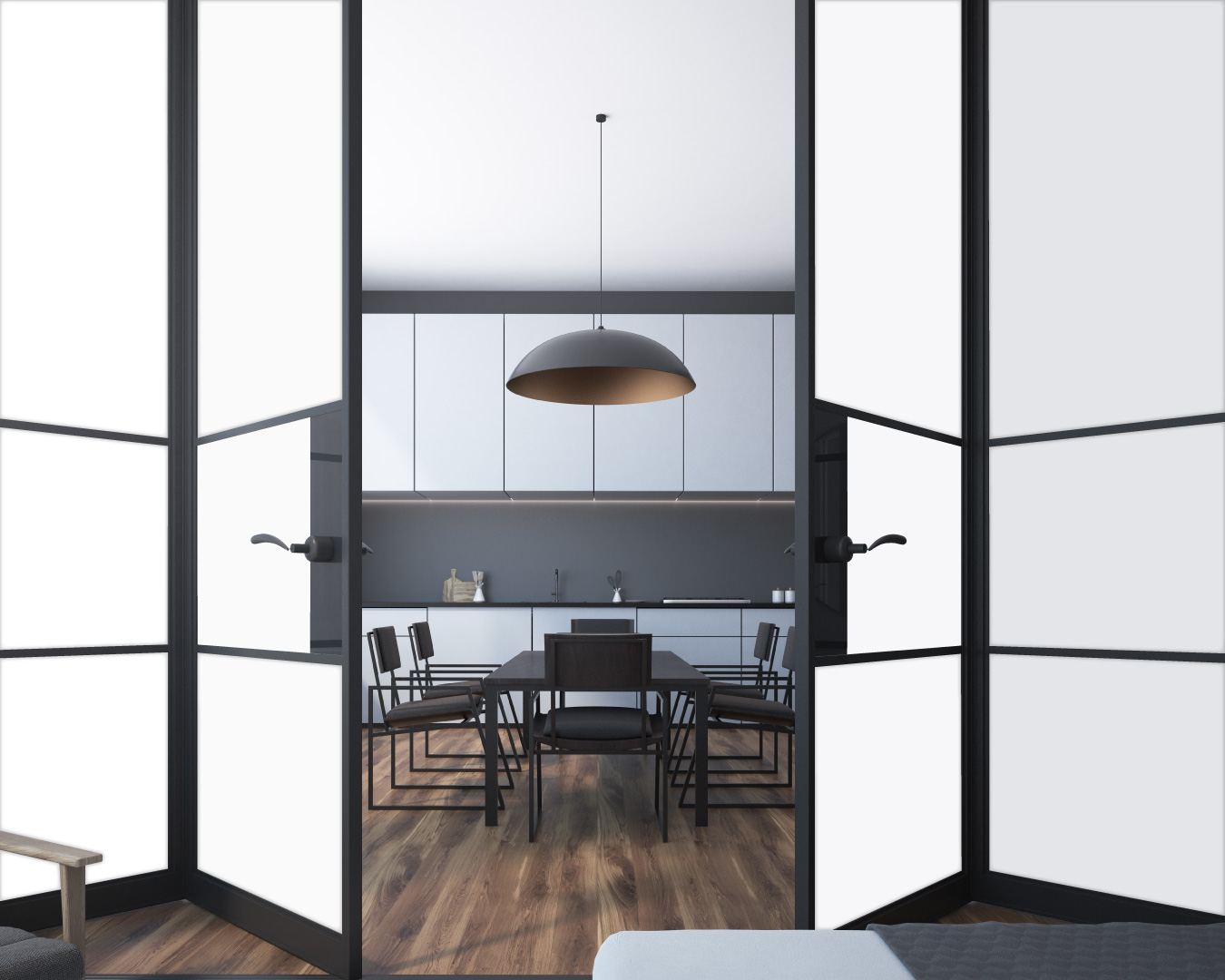
Frequently asked Questions
Our privacy glass works by utilising advanced PDLC (Polymer Dispersed Liquid Crystal) film. When an electrical current is applied, the liquid crystal molecules align, allowing light to pass through, making the glass transparent. When the current is switched off, the molecules mis-align, causing the glass to turn opaque or translucent, providing privacy.
Privacy glass utilises advanced technologies like liquid crystals or electrochromic systems that respond to external stimuli, such as electrical voltage or light, to change its visual properties.
Yes, privacy glass is an excellent choice for bathrooms and shower enclosures as it provides privacy on demand while allowing natural light to enter the space.
Yes, privacy glass can help reduce noise transmission between different areas, providing sound insulation benefits in various environments.
The installation time for privacy glass depends on the size and complexity of the project. It's best to consult with professionals who can provide an estimate based on your specific requirements.
Yes, privacy glass can be retrofitted into existing windows. However, the feasibility and process may vary based on the type of windows and the specific privacy glass system being used.




